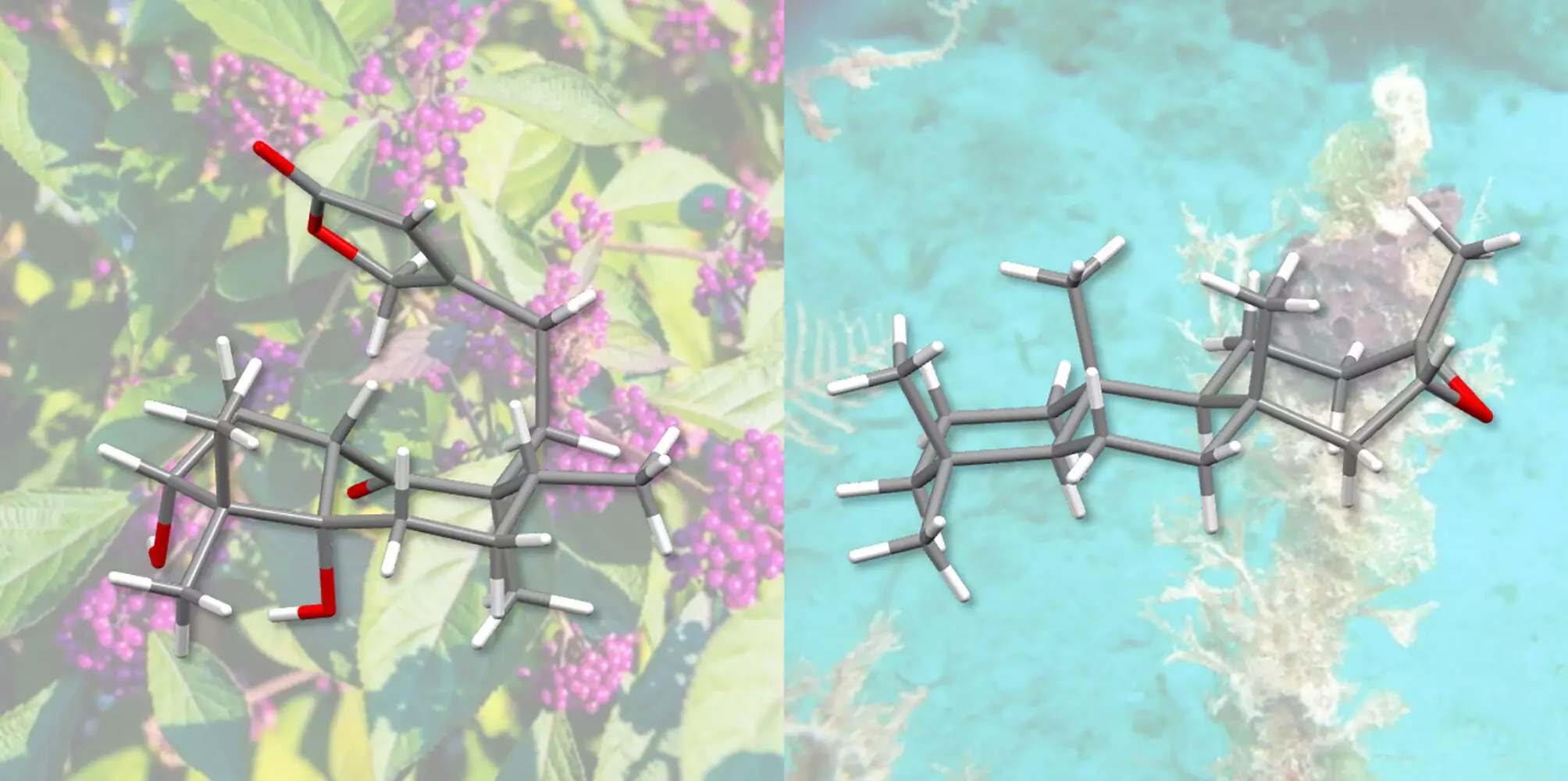Terpenes, natural substances found in plants, insects, and sea sponges, have long been known for their medicinal properties. These organic compounds have shown promise in treating a range of illnesses, from cancer to epilepsy. However, the challenge has always been in synthesizing these terpenes in a way that allows for maximum control over their molecular structure.
Chemists at the University of Basel have recently made a breakthrough in the synthesis of terpenes, introducing a new method that could revolutionize the way these compounds are produced. Professor Olivier Baudoin and his doctoral student Oleksandr Vyhivskyi have successfully synthesized two diterpenes – randainin D and barekoxide – using their innovative approach.
Randainin D, originally extracted from plants, has shown potential as a therapeutic agent for conditions such as rheumatoid arthritis and chronic obstructive pulmonary disease. By synthesizing this compound in just 17 steps, Baudoin and Vyhivskyi have demonstrated the effectiveness of their method. By utilizing ring-closing metathesis and photocatalysis, the chemists were able to create the complex ring structure of the molecule and incorporate an allyl group, a key component in organic synthesis.
In addition to randainin D, the researchers also successfully synthesized barekoxide using their approach. While this compound had been previously produced synthetically, Baudoin and Vyhivskyi managed to reduce the number of steps in the synthesis from ten to seven, making the process more efficient and cost-effective. This breakthrough has the potential to simplify the production of complex terpenes, opening up new possibilities for medication development.
The research conducted by Professor Olivier Baudoin and Oleksandr Vyhivskyi represents a significant step forward in the field of terpene synthesis. By harnessing the power of photocatalysis, these chemists have unlocked new possibilities for the creation of medicinal compounds. Their work not only showcases the potential of terpenes in drug development but also highlights the importance of innovative synthetic methods in advancing medical science. As we look towards the future of medications, it is clear that terpenes will play a crucial role in shaping the landscape of pharmaceuticals.


Leave a Reply